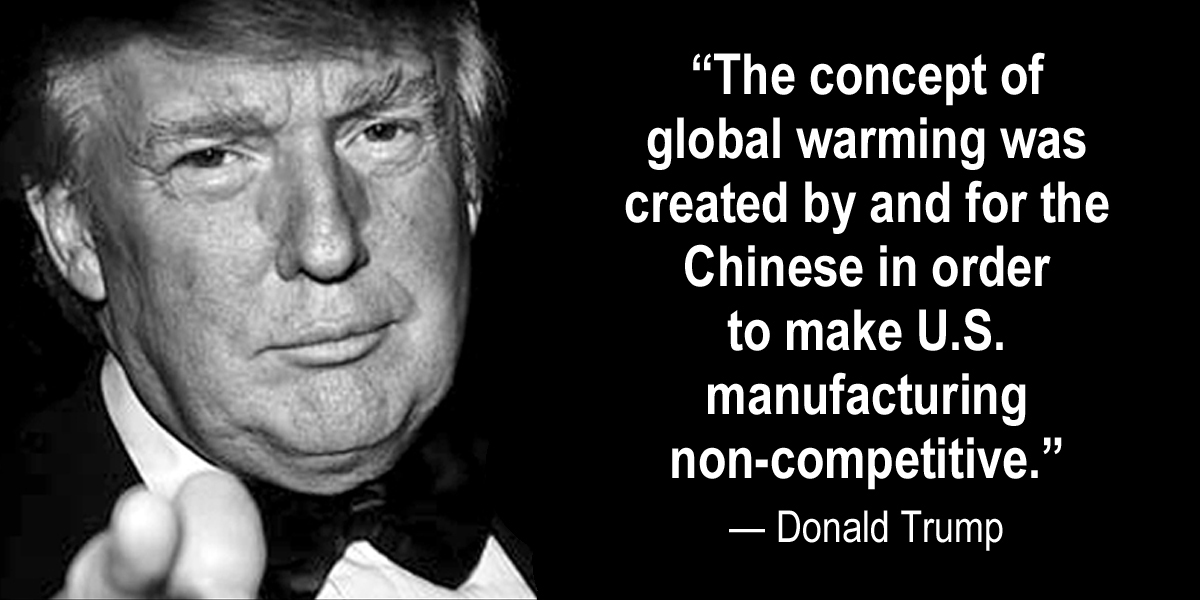The Elephant in the Room
As I write this, it’s difficult not to look at the elephant in the room. That is, of course, Donald Trump’s conviction on 34 felony counts and what that means for the country’s—and the world’s—lurch toward November elections. While the MAGA-verse and their Republican supplicants line up behind Trump, the specter of a convicted felon occupying the White House is now a genuine possibility.
Does meaningful climate, energy, and environmental policy
stand a chance with another Trump presidency? The quick answer is an
unambiguous “NO.” But the more profound answer is more nuanced, and giving up
is never a good response.
Climate Action: Countering Trump
However, given the limited progress made in fits and
starts over the past 30+ years, a second Trump term could ignite a sustained
and powerful catalyst for a significant social movement toward climate action.
Trump has already talked of disbanding the
Interior Department, eviscerating the EPA, and hobbling NOAA. He
will, once again, withdraw the country from the Paris Accord. It is Florida governor Ron
Desantis’ “Don’t Say Climate Change” mentality writ
large.
Could such fanaticism be just what the climate action
movement needs? Indeed, a second Donald Trump presidency could be a powerful
catalyst for a significant social movement toward climate action.
Climate advocacy groups, often galvanized by opposition,
would likely intensify their efforts, drawing widespread support. Local
governments and international actors could further counterbalance potential
regression by accelerating their own climate initiatives.
Even more significantly, Trump could ignite a broader
social movement that would challenge the entrenched power structures leading us
toward catastrophe.
Saving Ourselves
A few weeks ago, I talked with Dana Fisher, a researcher,
social scientist, and author of several books, including American Resistance in 2016 and her just-released
book, Saving Ourselves: From Climate Shocks to Climate Action.
Fisher is the Director of the Center for Environment,
Community, & Equity and a Professor in the School of International Service
at American University. Her research focuses on democracy, civic engagement,
activism, and climate politics.
Fisher argues that increasing climate shocks, which she
refers to as “risk pivots,” will drive an “AnthroShift,” or the kind of
substantive social, economic, and political change of the sort required.
“That’s where we get the apocalypse,” Fisher told me,
“because basically the process through which I think social change is most
likely given all of the powers pushing back against any change and wanting to
maintain business as usual, which you and I have both observed over, you know,
30 years, given that we’re talking about needing climate shocks that are severe
enough that it wakes up enough people to push back.
At that point, we’ll see enough people experiencing what
we’re calling this risk pivot: this personal threat that motivates them to take
action. It’s that experience that gets enough people pushing back that we might
actually get the power to push back against fossil fuel interests.”
In her book American Resistance, Fisher documented the
social mobilization in response to Trump’s first administration.
“Many people have asked me, in some ways, if we need to
get to an AnthroShift and (if) we need there to be a mass mobilization, just in
terms of getting people mobilized in the streets,” said Fisher. “A Donald Trump
presidency would do it much more effectively than we have right now. Now,
granted, it would be, it would be repressive, it would limit democracy, and it
would be terrible for the climate.
“…there’s no question that there have been a lot of
incremental successes from the Biden administration. I don’t want to discount
them because they matter. It’s just not enough. It’s too little too late, which
is not Biden’s fault, but it is what it is. And that’s where we are. And you
know, he’s continuing an ‘all of the above energy strategy,’ which
is problematic now because the clock is ticking.”
“I don’t really want to live through another Trump
presidency, and I certainly don’t want to be here in DC for it, Fisher said.
“But I can tell you that during a Republican administration of any sort, we see
much more engagement, civic engagement on the left, and much more participation
in protests on the left. And if that’s what we need, and there’s a lot of
reason to believe that it is, that would initiate it and open up all of these
opportunities faster. Yeah. But it would also, you know, burn down the planet
faster, too, so…”
Are We Ready for an AnthroShift?
Make no mistake, I loathe the idea of a second Trump
term. The damage to the country and the world would be devastating on so many
levels. However, as Fisher argues in her book, after 30 years of international
negotiations and a US climate policy that only became a reality through
concessions for the fossil fuel industry, it seems clear that the approach
isn’t working—certainly not within the time frame decades of delay now force
upon us.
Fisher writes in Saving Ourselves, “When risk becomes so
common that it is felt across society, the interrelations among the main
actors—coming from the state, market, and civil society sectors—shift substantially. The notion that risk can drive
social change is consistent with the scholarly work on the risk society and
reflexive modernization.”
In other words, when things get bad enough, things can
change. We should ask ourselves how bad it needs to get before we take to the
streets, literally or metaphorically, and finally take on the difficult task of
saving ourselves from ourselves.
This article is from our PlanetWatch newsletter. Sign up for the latest!
Thomas Schuenemanhttps://tdsenvironmentalmedia.com is the founder and managing editor of GlobalWarmingisReal.com and the PlanetWatch Group. His work appears in Triple Pundit, Slate, Cleantechnia, Planetsave, Earth911, and several other sustainability-focused publications. Tom is a member of the Society of Environmental Journalists.
